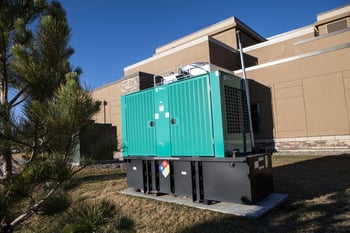 There are few things that are more disruptive to a business than interrupted power supply. Whether your business relies on computers alone or complex machinery, it cannot operate without power. In areas where power failures, blackout or brownouts are common, or where equipment uptime is critical at all times, that means that you need a backup plan. The two primary options are a backup generator or a UPS system. Here are the pros and cons of each.
There are few things that are more disruptive to a business than interrupted power supply. Whether your business relies on computers alone or complex machinery, it cannot operate without power. In areas where power failures, blackout or brownouts are common, or where equipment uptime is critical at all times, that means that you need a backup plan. The two primary options are a backup generator or a UPS system. Here are the pros and cons of each.
Pros and Cons of Backup Generators
Backup generators use propane, gasoline or diesel to generate power, and they are available in a range of sizes, from small portable units that can power one or two items, to large, wired in versions that can power an entire factory or warehouse. Smaller units are relatively easy to come by, and simple to operate, while larger generators can take time to arrive from a manufacturer, and will definitely require professional installation.
The downside to generators, aside from their fuel requirements, is that there is a lag between the power going off and the generator starting up. That lag can be as much as thirty seconds, depending on the size and configuration of the generator unit. Generators can also be noisy, give off fumes, and while they are usually fairly simple machines, you will still have to have a contractor inspect them from time to time.
Pros and Cons of UPS Systems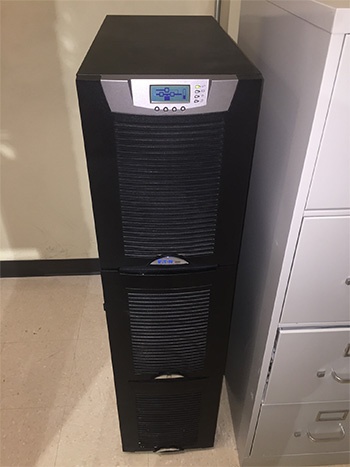
UPS systems, also known as Uninterruptible Power Supplies, are essentially very sophisticated batteries that are installed as an element of your power system. While the power is on, they charge on the current flowing through them, building up a store of power, and when the power goes out, they continue supplying power from the backup they have built up.
There is no lag or delay with UPS systems, which makes them great for critical installations where power must be stable at all times. They are also available in a variety of sizes and types, including personal UPS systems, which can be used to ensure that computer systems remain on long enough to shut down safely (well worth the investment for any business) to large units that can power your whole building.
UPS systems tend to be expensive, and they get more expensive the longer the battery back-up time provided. Because they are based on batteries, they can also be trickier to maintain and service.
A Hybrid of Both
If you are looking for a solution that offers the best of both worlds, you could design your backup power supply to power critical systems using UPS power, while other elements of your business run off a backup generator. There are many possibilities, and if you are concerned about power quality and backup power, it’s a good idea to discuss your needs with an electrical company, who can advise you about your options.
You may even decide to install backup solar or wind power, or to use some other method to power just the elements of your business that cannot be interrupted.
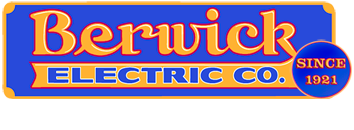



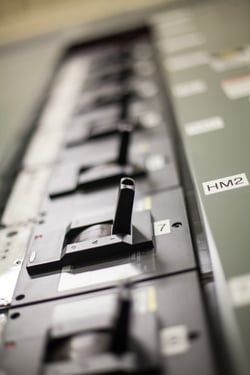 If your business has grown, or you have replaced old equipment with new, then you might already have outgrown your current commercial panel. Likewise, if your building was built in the 50’s, 60’s or 70’s, there is a good chance that your commercial panel might be using outdated technology.
If your business has grown, or you have replaced old equipment with new, then you might already have outgrown your current commercial panel. Likewise, if your building was built in the 50’s, 60’s or 70’s, there is a good chance that your commercial panel might be using outdated technology.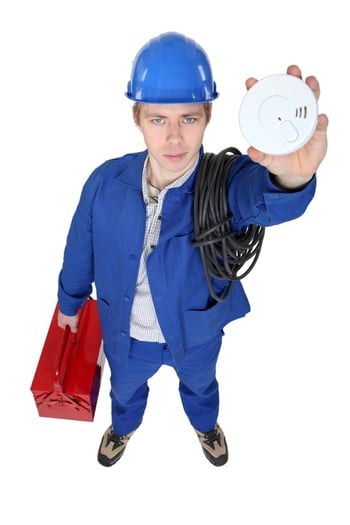 When most people think of smoke alarms, they think of the battery operated alarm units installed in their homes. However, while those are certainly the most common type of smoke alarm, there are also hardwired smoke alarm options that are much better suited to commercial and industrial applications.
When most people think of smoke alarms, they think of the battery operated alarm units installed in their homes. However, while those are certainly the most common type of smoke alarm, there are also hardwired smoke alarm options that are much better suited to commercial and industrial applications.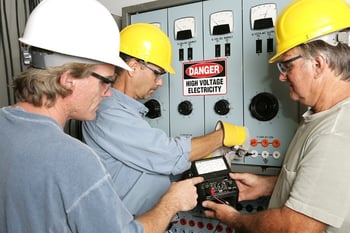 In the USA there are a number of
In the USA there are a number of 
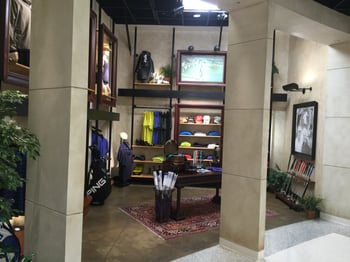 If you want to maximize your retail income, you've got to do everything possible to entice your customers to come in and stay. Sure, having the right inventory is a great first step, but the environment in which you display it can make all the difference. If your retail space has got the right ambience, customers will love the shopping experience in your store. One of the most important parts of an indoor environment is the lighting. Lighting creates mood, highlights products you want to emphasize, it generally adds to the flavor of your store. Give up on those tired old florescent lights. Add new lighting fixtures for increased store traffic and great personality.
If you want to maximize your retail income, you've got to do everything possible to entice your customers to come in and stay. Sure, having the right inventory is a great first step, but the environment in which you display it can make all the difference. If your retail space has got the right ambience, customers will love the shopping experience in your store. One of the most important parts of an indoor environment is the lighting. Lighting creates mood, highlights products you want to emphasize, it generally adds to the flavor of your store. Give up on those tired old florescent lights. Add new lighting fixtures for increased store traffic and great personality.  Reducing the environmental footprint of your business can seem like a huge task, but going green doesn't have to be an all-or-nothing proposition. Unless you're creating your Colorado Springs business from the ground up, incremental changes are probably the best way to turn bad habits into good ones. Employees are more likely to embrace change if you don't demand a list of new rules. Every change you make
Reducing the environmental footprint of your business can seem like a huge task, but going green doesn't have to be an all-or-nothing proposition. Unless you're creating your Colorado Springs business from the ground up, incremental changes are probably the best way to turn bad habits into good ones. Employees are more likely to embrace change if you don't demand a list of new rules. Every change you make